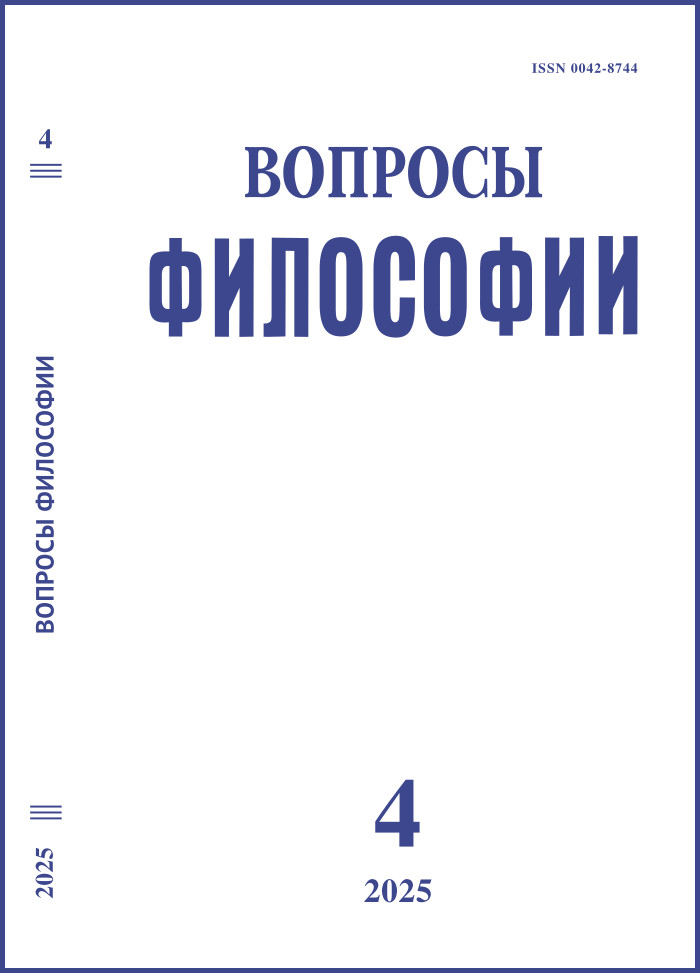Artificial Intelligence, Big Data and Experimental Method
DOI:
https://doi.org/10.21146/0042-8744-2025-4-48-59Keywords:
experimental method, reality construction, AI, big data, third world, three-component ontologyAbstract
The article examines the possibilities and boundaries of the transformation of the experimental method in the process of mastering digital tools and technologies for processing large amounts of information using artificial intelligence systems. The author analyses such innovative changes in experimental cognition practices as automation of routine operations, big data analysis, intelligent
modeling and forecasting, optimization of experimental design, automated hypothesis generation, intelligent experiment management in real time, as well as improved accuracy and reproducibility. Based on the analysis, historical parallels are drawn that allow us to reconstruct the evolution of the way reality is constructed in science as measurement tools and techniques improve, as well as the accompanying changes in the systematization of scientific knowledge and its integration into the space of scientific theory. Attempts to create a new ontology for the modernization of the system of ontological assumptions underlying the experimental study of nature and society are separately investigated. The analysis focuses on the ontological doctrines of Karl Popper and Roger Penrose, each of which is based on the concept of three worlds. The similarities and differences of these “three-component” ontologies are shown, as well as the possibilities of their application to substantiate the consequences of the introduction of artificial intelligence systems and the big data method into the experimental activities of researchers. The strengths in the definition of the “third world” by Karl Popper and Roger Penrose are identified and described, as well as the theoretical and conceptual difficulties that arise in each of these cases. The possibility of substantiating a new model of experimental research in the course of applying new tools and methods, such as artificial intelligence systems and the big data method, is being critically analyzed.

